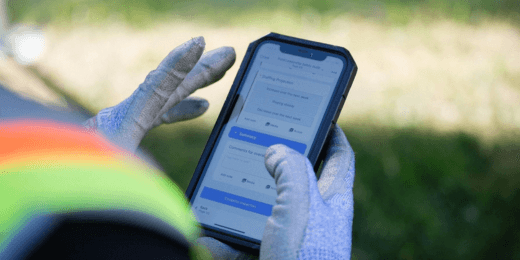A Guide to Celebrating National Checklist Day at Work
Learn about national checklist day, why it’s important, and how organizations can celebrate it.

Published 8 Oct 2024
Article by
4 min read
What is National Checklist Day?
The US celebrates National Checklist Day on October 31st to highlight the usefulness and importance of checklists. The day promotes how checklists prevent errors and improve productivity for organizations or individuals. Additionally, it reminds us of the value of staying organized with lists for safety, efficiency, and peace of mind.
Importance
National Checklist Day is a reminder of the value of staying organized in both personal and professional settings. By promoting checklists, the day emphasizes the role of planning and efficiency in achieving success and avoiding mistakes. Celebrating this day encourages individuals and organizations to reflect on how structured approaches can improve daily productivity and help tackle complex tasks.
Additionally, National Checklist Day fosters awareness about how small, seemingly simple practices can make a big difference in various fields, from safety to project management. It inspires people to incorporate checklists into their routines, improving outcomes and reducing stress. Observing this day helps create a culture of mindful preparation, accountability, and achievement across all walks of life.
A History of National Checklist Day
National Checklist Day traces its origins to a tragic event in aviation history. On October 30, 1935, a Boeing Model 299 aircraft crashed during takeoff due to human error, prompting the introduction of aviation checklists to prevent future accidents. This day is now celebrated annually on October 30th to commemorate the safety improvements made and to recognize the value of checklists in ensuring task completion.
As the aviation industry adopted the use of safety checklists, the idea spread across various industries to improve accuracy and efficiency. By the 1950s, National Checklist Day was established to celebrate the role of checklists in enhancing productivity and preventing errors across numerous sectors. The day continues to serve as a reminder of the vital role checklists play in improving daily operations and maintaining safety standards.
How Do Companies Celebrate National Checklist Day?
There are various ways to celebrate National Checklist Day, as there are many industries that utilize checklists in their unique ways. Here are some of the ways that companies across the country celebrate and recognize National Checklist Day:
Creating Checklists
One way companies celebrate National Checklist Day is by encouraging employees to create customized checklists for key tasks and processes. This could include daily goals, project management steps, or safety protocols. It ensures better organization and task completion across the team. It would be best to use a checklist app for this or an operations improvement platform with checklist creation abilities, as this will ensure that your documents are easily accessible anytime and anywhere.
Achieve operational excellence
Cultivate a culture of excellence with our digital solutions that enhance efficiency, agility, and continuous improvement across all operations.
Updating Checklists
Another way to celebrate the importance of checklists is to conduct a company-wide review or internal audit of existing checklists to ensure they are up-to-date. Departments can update their lists to align with current workflows and operational needs. Keeping checklists relevant will improve efficiency.
Sharing Checklists
Some companies celebrate checklists by conducting sessions where employees or teams share their checklists with others. This can promote collaboration and introduce useful strategies across different departments. Sharing enhances productivity and alignment in cross-team projects. For digital checklists, this can be done as simple as sharing a link through the cloud or through different social platforms, ensuring that these documents are sent and received as intended.
Auditing Existing Checklists
A great way to highlight how important checklists are is to assign teams to audit checklists used in regular operations, looking for redundancies or outdated items. This process helps refine procedures and ensures that workflows are streamlined. Auditing can also spark discussions on how to improve organizational systems.
Reminding Teams of the Importance of Checklists
Organizations must understand the importance of checklists, which is why some companies celebrate the day by sending out communications that highlight the importance of checklists in reducing errors and boosting efficiency. Sharing real-world examples of checklist success stories can reinforce the value of this simple tool. Celebrating the day with a reminder fosters a culture of mindfulness and accountability.
Celebrate National Checklist Day with SafetyCulture
Why Use SafetyCulture?
SafetyCulture is a mobile-first operations platform adopted across industries such as manufacturing, mining, construction, retail, and hospitality. It’s designed to equip leaders and working teams with the knowledge and tools to do their best work—to the safest and highest standard.
Streamline processes, eliminate bottlenecks, enhance resource utilization, and build an agile and scalable infrastructure with SafetyCulture. Strive for operational excellence to boost competitive advantage, foster sustainable growth, and deliver long-term value.
✓ Save time and reduce costs ✓ Stay on top of risks and incidents ✓ Boost productivity and efficiency ✓ Enhance communication and collaboration ✓ Discover improvement opportunities ✓ Make data-driven business decisions
FAQs about National Checklist Day
Related articles
Operations
Business Processes

A Guide to How Operations Automation Streamlines Workflows
Learn what operations automation is, which workflows require streamlining, and how it reduces errors to improve performance.
Business Processes
Operations

Yokoten: The Key to Quality Improvement
Get to know the basics of the Yokoten principle and how it accelerates continuous improvement by sharing known solutions across teams.
Operations
Business Processes

Implementing Value Management for Better Business Outcomes
Explore value management, its principles, benefits, and helpful strategies to drive peak performance and cost-efficiency.